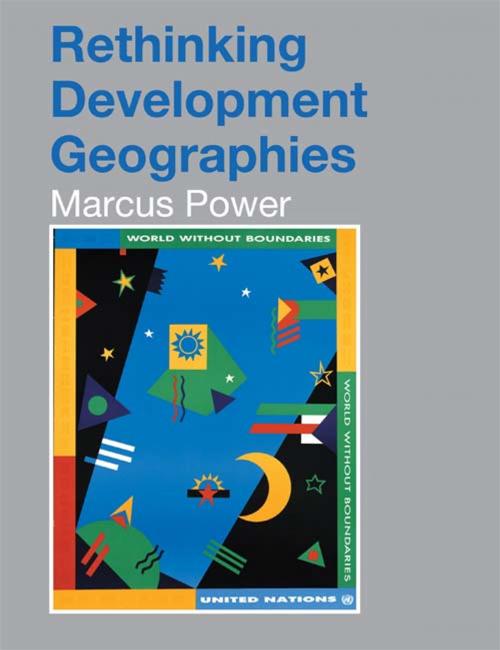Rethinking Development Geographies
Nonfiction, Science & Nature, Science, Earth Sciences, Geography, Social & Cultural Studies, Social Science, Human Geography| Author: | Marcus Power | ISBN: | 9781134531400 |
| Publisher: | Taylor and Francis | Publication: | August 2, 2004 |
| Imprint: | Routledge | Language: | English |
| Author: | Marcus Power |
| ISBN: | 9781134531400 |
| Publisher: | Taylor and Francis |
| Publication: | August 2, 2004 |
| Imprint: | Routledge |
| Language: | English |
Development as a concept is notoriously imprecise, vague and presumptuous. Struggles over the meaning of this fiercely contested term have had profound implications on the destinies of people and places across the globe. Rethinking Development Geographies offers a stimulating and critical introduction to the study of geography and development. In doing so, it sets out to explore the spatiality of development thinking and practices.
The book highlights the geopolitical nature of development and its origins in Empire and the Cold War. It also reflects critically on the historical engagement of geographers with 'the Tropics', the 'Third World' and the 'South'. The dominant economic and political philosophies that shape the policies and perspectives of major institutions are discussed. The interconnections between globalization and development are highlighted through an examination of local, national and transnational resistance to various forms of development.
The text provides an accessible introduction to the complex and confusing world of contemporary global development. Informative diagrams, cartoons and case studies are used throughout. While exploring global geographies of economic and political change Rethinking Development Geographies is also grounded in a concern with people and places, the 'view from below', the views of women and the view from the 'South'.
Development as a concept is notoriously imprecise, vague and presumptuous. Struggles over the meaning of this fiercely contested term have had profound implications on the destinies of people and places across the globe. Rethinking Development Geographies offers a stimulating and critical introduction to the study of geography and development. In doing so, it sets out to explore the spatiality of development thinking and practices.
The book highlights the geopolitical nature of development and its origins in Empire and the Cold War. It also reflects critically on the historical engagement of geographers with 'the Tropics', the 'Third World' and the 'South'. The dominant economic and political philosophies that shape the policies and perspectives of major institutions are discussed. The interconnections between globalization and development are highlighted through an examination of local, national and transnational resistance to various forms of development.
The text provides an accessible introduction to the complex and confusing world of contemporary global development. Informative diagrams, cartoons and case studies are used throughout. While exploring global geographies of economic and political change Rethinking Development Geographies is also grounded in a concern with people and places, the 'view from below', the views of women and the view from the 'South'.















